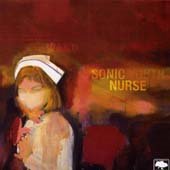August 11th, 2011 by Edwin Leap, M.D. in Health Policy, Opinion
1 Comment »

The American College of Graduate Medical Education has enacted further restrictions on resident work hours. No more than 80 hours per week of work for resident physicians, averaged over one month. And no more than 16 hours of continuous work for first year residents (24 after that), which includes patient care, academic lectures, etc.
Whenever they do this sort of thing, everyone seems excited that it will make everyone safer. After all, residents won’t be working as much, so they’ll be more rested and make much better decisions. It’s all ‘win-win,’ as physicians in training and patients alike are safer.
I guess. The problem of course is that after training, work hours aren’t restricted. There is no set limit on the amount of work a physician can be expected to do, especially in small solo practices, or practices in busy community hospitals.
I understand the imperative to let them rest. I understand that fatigue leads to mistakes. I get it! But does the ACGME get it? Read more »
*This blog post was originally published at edwinleap.com*
July 17th, 2011 by Edwin Leap, M.D. in Health Policy, Opinion
No Comments »

The old joke in medicine goes, ‘don’t get sick on July 1st.’ That’s because it’s the day when new resident physicians, freshly graduated from medical schools across the land, begin their training programs. Although they have spent four years in undergraduate school and four years in medical school, it’s residency where physicians are made from the raw material of knowledge-rich, experience poor high achievers.
However, even in residency physicians are seldom told the entire story of how the practice of medicine, and their lives, will look and feel as their careers evolve and they enter the medical work-force.
Since our profession changes from year to year and administration to administration, it seems a good time to mention some of the things upcoming young physicians will face. Sadly, these are things seldom mentioned by pre-med advisors or academic medical educators.
You see, physicians are struggling. Due to falling reimbursements and the ongoing federal mandate to see non-paying patients on call, it is increasingly difficult for physicians to cover costs like malpractice insurance, licensure, professional memberships and office overhead. (Well, if they want to have a house, family and food, that is.)
Many physicians are Read more »
*This blog post was originally published at edwinleap.com*
July 8th, 2011 by Bryan Vartabedian, M.D. in Opinion
No Comments »

It’s the cusp of a new medical year and there’s no shortage of advice on how to succeed as a house officer. The White Coat Underground and Wes Fisher will put you in the right direction. And I love Mary Brandt’s Advice for New Interns.
But just a couple of more points to keep in mind:
Keep your options open. Medicine is changing quickly. You’ll start your career training as a 20th century doctor and retire in a place none of us can imagine. Your ultimate success will be determined by your ability to adapt to a shifting foundation. Keep an open mind.
Quiet your fingers. You are the first generation to have publication tools that make it dangerously easy to breach your patient’s trust. Keep their business off the public forums. Better yet, find a way to apply all this wonderful technology to really move the chains forward. Read more »
*This blog post was originally published at 33 Charts*
April 29th, 2011 by Bongi in True Stories
No Comments »


The consultants didn’t always need to know what was happening on the floor. But sometimes keeping things away from them became downright clandestine.
I was a senior registrar at Kalafong (hell). An old friend of mine had just taken up a post as consultant in the department of Internal Medicine. One day he approached me.
“Bongi, what are the chances you can do the occasional open lung biopsy for me?” Now there was no thoracic department in Kalafong so it seemed to me to be a reasonable request. In fact I was quite excited. It would give me a chance to do a few thoracotomies, something us general surgeons don’t do all that regularly.
“Sure! Anytime. Just let me know and I’ll book them on my list.”
“Uhmmm, there is just one small problem,” he continued, “I’ve already asked your consultant when the previous registrar was here and he bluntly refused, so I suppose you would need to convince him.” Read more »
*This blog post was originally published at other things amanzi*
June 5th, 2009 by MotherJonesRN in Better Health Network
No Comments »

 I wrote this post a long time ago when I first started blogging. I’m recycling the post because this information bears repeating. I’ve been seeing some behavior lately that is inappropriate, and I’m telling you this stuff for your own good. Please, never roll your eyes at a nurse who is old enough to be your mother. She may be going through menopause, and it could be the last thing that you ever do. Just sayin.’ Don’t make waves at the nurses station.
I wrote this post a long time ago when I first started blogging. I’m recycling the post because this information bears repeating. I’ve been seeing some behavior lately that is inappropriate, and I’m telling you this stuff for your own good. Please, never roll your eyes at a nurse who is old enough to be your mother. She may be going through menopause, and it could be the last thing that you ever do. Just sayin.’ Don’t make waves at the nurses station.
I worked as a neurosurgical nurse many years ago at a teaching hospital in the Midwest, and twice a year a new crop of interns descended upon our unit. It was the best show in town. The spectacle began with the chief of neurosurgery, Dr. Holier Than Thou, strutting on to the unit with his entourage marching behind him. He stood before the crowd in his impeccable white lab coat, telling everyone within earshot of his importance, and how he held the power of life and death in his hands. I would sit at the nurses station and snicker at the biannual parade, and remembered my first day in the hospital as a nursing student. Two interns had asked me to go into a patient’s room to get a set vitals signs. They didn’t tell me that the patient was cold, stone dead. I walked into the patient’s room, saw the dearly departed, and calmly walked back to the nurses station to find the interns laughing their fannies off. I told them they were going to make damn good doctors one day, but first they had to learn what rigor mortis looked like. Nonetheless, because every new group of interns looked like lambs being lead to slaughter, I pitied them, and I gave them information to use as a survival guide. These are the rules I taught them about working with nurses.

1) Nurses deserve respect. We are with the patients twenty-four hours a day, seven days a week, while doctors are only able to see patients a few minutes a day. Smart interns forge alliances with the nursing staff, and understand that nurses can save their butts when something goes wrong with one of their patients.

2) Don’t take the last piece of pizza in the nurses lounge unless you are invited to do so. Nurses are territorial about food.

3) Nurses do not tolerate interns with a budding God complex. Nurses have no problem calling arrogant interns every hour on the hour for Tylenol orders, especially at night. Arrogance breeds contempt.

4) Don’t be stupid. If you want to complain about nursing care, be careful when you approach a nurse who is working the last half of a double shift. Refer to rule #3.

5) Nurses are your friends. We want to see you succeed, and if we like you, we will make sure that Dr. Holier Than Thou doesn’t find out that you order Demerol 1000 mg, instead of 100 mg, IM q 4 hours PRN because you were dead on your feet after being on call for three days in a row.

*This blog post was originally published at Nurse Ratched's Place*























